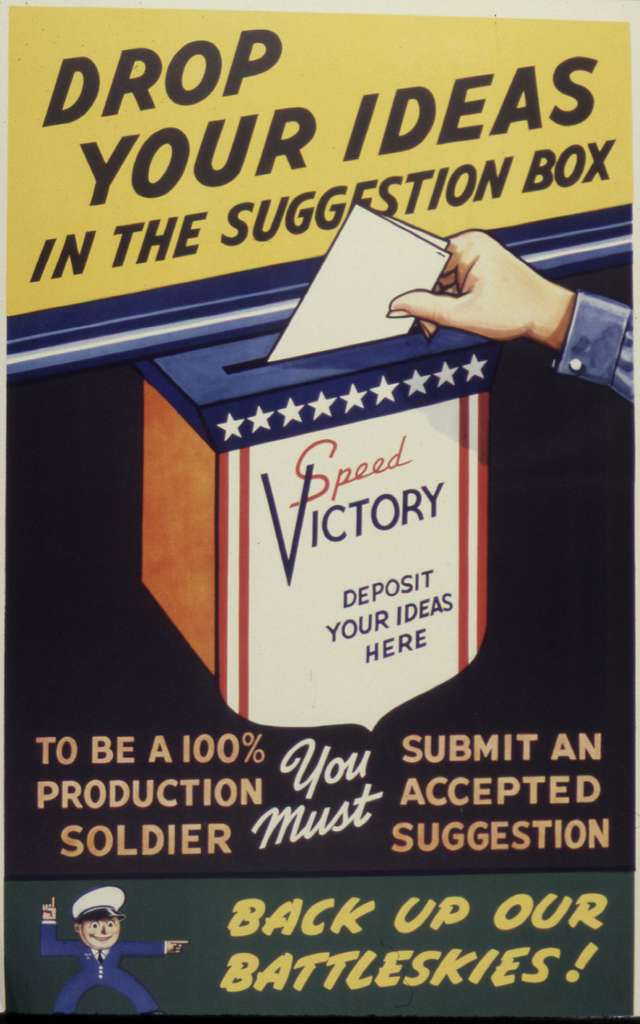My two cents on the 2025 ACE Guidelines

Every so often you get inspired to do a post based on recent events, and this one would fall into that category. I have been getting into a routine where I check SAA Connect about once a week. SAA Connect is a forum site where people can submit various archival discussions. Posts tend to range from webinar reminders to questions in the field. In this case, it is a request for feedback.
I remembered that the Archival Continuing Education (ACE) Guidelines will update in 2025. After reading their proposal and thinking it over, I have a few thoughts.
For those who know me, welcome back. If you are new here, thanks for stopping by. My name is Patrick Burden; I am currently the Digital Collections Archivist for WVU. I have over 17 years of experience in the IT field before making the jump to archiving.
Due to the nature of the request, the focus is going to be on continuing education. We will not mention any discussion on getting a degree or doing an internship. For clarity, I have my Digital Archives Specialist (DAS) certification. I have also attended courses that fit the Arrangement and Description (A&D) as well. Both of these programs are run by the Society of American Archivists (SAA). The Academy of Certified Archivists (ACA) is another that I am aware of, but I have not pursued that yet.
Avoiding Paper Tigers

Before we begin, I want to bring in my IT side for a moment. Continuing education is not only looked down upon, but you will also get judged for doing it in the first place. In IT, people only value the results of “what you have done lately.” If you can point to something that you have completed and can explain your reasoning, then you have gold.
Yet, Human Resources exists. HR is a group of people that means well. They want to make sure that they can cultivate a team that is able to work together and have the knowledge to excel. The problem is that they do not talk to the people who are going to actually work with them to get whatever they value.
In my old IT job, they were hiring an agile coach (that is a story in and of itself for later), and it came down to two candidates. The first one showed examples they had done in other organizations. The latter was able to showcase their rate in training other coaches. We wanted the former; they chose the latter. It may be a surprise that they did not last long in their position. Although the series of things they did to prolong their time would stagger most people.
There is more I could say on this, but to keep it concise. There is always a leeriness of people who have not applied the knowledge that they are able to learn. So much so that there is a cottage industry for people to jump into IT and make headway in starting their career. Welcome to boot camps!

Imagine four eight-hour days with the most inventive studying that you can imagine. Add on top of that a bar that you need to hit to get a paper showcasing that you passed the course and are ready to work. The bootcamp does not care how well you worked after you leave. Only if you are able to finish a curated project and recieved the proverbial green check mark.
The concept of taking these courses to immediately apply is awesome. Can I change my career in six weeks AND have something to show the person that I am interviewing? Sign me up! The problem is that once you land that job, your ceiling for how far you can go is very limited.
If you get the CS degree from a school, you may start behind the boot camp person. But you will be able to exceed any heights they are willing to go to. By being able to explain why things work, you can catch up to the boot camp person and show value in the company. Over time, you will exceed their capabilities since you can see the bigger picture. The boot camp is good for the trench work; the degrees are for the generals.
This is why they get the nickname of a paper tiger. They are able to do the work in a Goldilocks state where nothing goes wrong. As soon as a wrinkle comes around, they will fold over and be unable to fix the problem.
Reviewing the current state of ACE

As you can imagine, this is something that you do not want to duplicate in the Archives world. The goal should be that anyone taking these courses can get value from them. Being able to learn the skills needed to apply it to their job. In reading over the proposal, I am left with more questions than answers.
First, the good. They provide guidance on how to design a course. They also emphasize seeking feedback to improve the presenter. Getting this feedback will make sure the presenter can catch mistakes early. The comparison between the methods of learning and their advantages is nice. I, unfortunately, doubt many will take the suggestions into account.
When it comes to the qualifications of an instructor, this is where you start to lose me. It's good to ensure the instructor knows the subject before having them teach. The issue I have is that you are relying on factors that do not cross over to the ability to teach. Two criteria that you have mentioned are publications and adjacent knowledge. The most important factor you have not considered is how well they can present their topic.
I recommend a few changes. They should emphasize public speaking, mentoring, and classroom skills more. If I know everything about X, and I cannot communicate that to you, then why should I do it in front of others.
For the course structure, I know that using buckets would be a good metric. Having a quick shorthand to help someone pick out a course would be beneficial. Borrowing the terms from the ACA makes sense. Why reinvent the wheel if someone has already designed it. I would caution you about current descriptions since you do not provide any examples.
This does not have to be a comprehensive list. A simple list of things for each category would help people know what goes where. I would open up to key people in each of the domains to encapsulate where things should go.
When it comes to the specialized courses, this is where things are going to get dicey. The only real way to understand advanced technology is to actually use it. The IT boot camps will create a sandbox to teach skills through repetition. The problem is that if we are teaching toward that scenario, bad habits will develop.
 The hidden enemy
The hidden enemy
In the QA world, we call this testing to a checklist. If your job is to check all the boxes, then what is going to incentivize you to go beyond the boundaries? Why explore when you have hard metrics? Doing the least work to increase efficiency may seem to be good. Over time, someone may find shortcuts to check the boxes. Forgetting that the box is there to remind you to do the actual work.
Instead, what you need to do is have some project-focused work that goes in tandem with the course. A breakdown should be something like this. 25% Instructional, 70% Hands-on a live project, and 5% wrap-up to get everyone’s thoughts. Some projects are good candidates: Wikipedia Editing, Citizen Archivists, and internal database authority cleanup. Working on real projects gives people experience, which they can apply.
While this does broach internships as a topic, I will stop there. Do reach out if you want to know my thoughts on the matter and can do another post like this. Before wrapping up here are some thoughts I had when I was going through these programs.
Selling fool’s gold?
The reason I have not gone for the ACA is that they were unable to explain why it is worth getting the certification. When I attended my first SAA meeting in Boston a few years ago, I was able to talk to a representative of the ACA. I asked him to sell me on the certification. He told me that it was a line to add to a resume, and that was it.
Now, as you can imagine, that was an odd set of circumstances to have in person. But, I was willing to give the benefit of the doubt. I approached him during a quiet period between sessions, and he might not have had his pitch ready.
So, I did what many people would do, ask around. I could find someone during the conference with ACA credentials. Then strike up a conversation talking about their experience. If only past me had that idea.
Instead, I went with the next best thing, my professors! Since their advanced credentials and experience could fill in the missing link. They told me not to go for it. Like me, they did not have the experience of what it would do to advance someone’s career. There were talks of a paper in which they were going to check the ACA, but I have not seen that.
As someone who got out of the job search, I only saw this in a handful of openings. Of those where they listed it, they also asked for 10+ years of experience. It felt like the person writing the job posting threw it on there as an afterthought.
If you are someone who cares about the ACA. My suggestion is to get better marketing to explain to people what value it brings. Once you do that, make it open and accessible to those searching within the field.
The whims of a schedule

As for the A&D certification, I was actually trying to pursue it recently but encountered a pitfall. One example is taking basic fundamental courses. Having a shared foundation will help certified individuals have the same starting point. The issue I encountered is that they need you to go and take a class in person.
Learning in person is, generally, the better option if you can do it. Its an environment that reduces distraction and gets you face to face with your peers. I recently did one at Penn and gained a lot of knowledge that I am applying. Yet, you are now playing roulette with where the class is being held. I was able to make the Penn class since I was living close by. If I have to travel, then we are going to encounter a different story.
Let’s use a current example. Let’s say that I want to do the A&D certification. I have to take a fundamentals course. Currently, students must complete this course in person. If I am eager, I am going to need to book it as soon as I can. At the time of writing, it appears that the next one is going to take place in Austin, Texas.
After doing some back-of-the-napkin math, it would cost me over $1,100 to take this course. Breaking down the costs, $400 would be the cheapest for me to register for a seat. This requires both SAA membership and reserving it early in the calendar year. The rest would be for hotel, food, and transportation with the closest proximity to the venue. Taking one class with nothing else offered in the area is too high to justify the costs.
While I could take other courses in the meantime. The fact is this hard rule is going to limit how fast I can achieve the certification. If I wanted to educate myself, I would need to get into financial hardships to speed up this process. Or hope that an event will occur closer to my geographical location to afford it. If I could have the option to take this course online, I would be able to take it on my schedule at a reduced cost. Yes, there are drawbacks to working from a distance. But, if it saves $700, it may be worth it.
There is an alternative that they are doing to give more bang for your buck. That is scheduling these classes as a “Day 0” workshop at an archives conference. The smaller the coverage area an organization is, the simpler it will be for someone to attend. This means I am no longer paying for a class, but also a public gathering to share ideas with peers.
In a perfect world, you'd have them at regional conferences to boost their appeal. In turn, more people will go to these events, building a stronger network in their area. From a cost perspective, you can now justify a higher cost since you are going to a venue for many things. Because the local organization is going to cover some costs, such as the location expense. You can lower the cost of attending the course so that it could benefit everyone.
An overview on getting my DAS

Since I skirted around the topic, it is time to talk about the process itself. I got my DAS certificate during the pandemic while also going for my masters. Because of this, they waived the in-person class rule and instead had a zoom offering. This made it easier to take these courses and complete them.
The Zoom classes have set start and end dates. With the assumption to be on the call for the entire class. The good news is, if you can't make it, you can access the recording on their platform for a limited time. Once a class starts, you will have 30 days to view all the material and then take the exam to get credit for the course. Doing so will give you a certificate that you can save, and credit gets applied to the exam.
Once you confirm that you meet the requirements, you can prepare for the final exam. SAA will send an email before the testing for you to sign up. This happens in January, May, and October, but this could change in the future. If you score 80% or better on the final exam, congratulations! You have yourself a certification.
Like with most other certifications, there is an education rule to renew it for another cycle. You would need to take some more classes to maintain the certification. The last time I checked, it was five, but check the website in case that changes. You can then select the rest of the courses to meet this rule. The only quirk is that no more than one of these courses can be foundational. Since you have already gone through it, you should know most of the info taught at that level.
What is the goal of continuing education

Outside of the requirements of a job, what would motivate you in taking these courses? The simple answer is filling in gaps that Library School doesn’t have time to cover. A non-tool-dependent explanation lets you go “one level deeper.” It shows you what happens under the hood. You realize this field isn't THAT hard (on a small scale). It also makes you ponder how to improve your organization.
One of the running jokes I would often tell is that you would look at the OAIS model in 75% of the courses. As soon as you ask a question on how to read the chart, the class moves on. I took a class (From Pre-SIP to DIP) to actually have it explained to me in a manner that I could understand. It's annoying. For something core to the field, I had to pay hundreds of dollars to get an answer.
There is, yet, a bit of a downside to these courses. First, they are going to cost you. If you are able to take them on someone else's dime as a formal way of sharpening your skills, do so. I paid about $6,000 to take all the classes and get the materials to get my DAS. I was able to spread this out over the course of a year.
I often wait until the SAA education has its sales on their courses. I saved hundreds by bulk buying per-recorded courses on sale. This won't work with the live Zoom calls. So, be careful when choosing the cheap courses.
Next, prepare to adjust your schedule to these courses. I was able to select courses that were being offered between school. Those windows of time were ideal; I could take the classes with minimal interruption. I did mention the 30-day windows earlier. So you could shift the course by sitting on it for a few weeks. Then completing it when it would be most helpful.
Instead, try to take it right away and then go back and forth with the person who is running the course. You have a rare opportunity to talk to someone on a one-on-one basis. Use it to confirm your understanding of the materials. If there is an assignment, do it, and get it checked over. Download the “answer” and understand why it is different so that you can use it as a reference going forward.
One negative about the course structure was the content in the fundamental courses. The problem isn't requiring them. It's that there's no single course on a specific topic. This is something I like to call the rules lawyer problem.

If I were to sit down and read a tabletop role-playing game. Then point to many areas of the book that covered the same set of rules, it fails. Using many wordings allows a contradiction. It could spark a debate over which section to interpret.
Instead, you should test what the foundation should include. Organize it for one topic only and go deeper in the details. If another course is using part of this, that's okay. Make sure that they mention that the course exists if someone wants to explore further in the topic.
Expanding this to all Continuing Education programs could cause some problems. Since you would need coordination between each government body to follow this structure. Given that only the ACA and SAA are doing this, I would be willing to take that risk.
Final Suggestions

So, with all this context, what would I recommend ACE to do? First, do not rely on surveys to determine how well someone has taught a course. Oftentimes, you will get very positive results if you take a course with no separation. Ask the students six months to a year after they took it if they can apply what they learned. If the answer is yes and they can prove it, then that would be a success.
We need to discourage the one-off class structure. Not everyone has a budget dedicated to taking courses at their job. Consider the location and timing of your class, and rotate its location often. Focus more on local organizations helping to establish that foothold.
Have a bigger emphasis on doing actual work on real projects. Some examples:
- Editing Wikipedia.
- Transcribing Script from documents (see Citizen Archivist).
- Reducing a backlog of work at a nonprofit organization.
- Holding a community digitization event.
- Updating the authority files in a specialized database.
Getting hands dirty is the best way to apply knowledge and gain valuable experience.
Have a centralized body to help create a better roadmap for setting required courses. Ensure a foundational course is suitable for building upon. It should go in-depth into any standard or tool one can use to apply for their job. Explain what popular tools are doing to demystify their process. Knowing the reasons for the steps taken helps one understand the practices.
Work with higher education to come up with a set of things each area should cover. Try to find the gaps that schools are unable to cover and make a course surrounding that. Then let the school inform students on where to get this so that they can pursue it. A school would be the perfect venue for an in-person class for beginners.
I hope you find these suggestions helpful. Reach out if you have any questions. Until next time, take care.